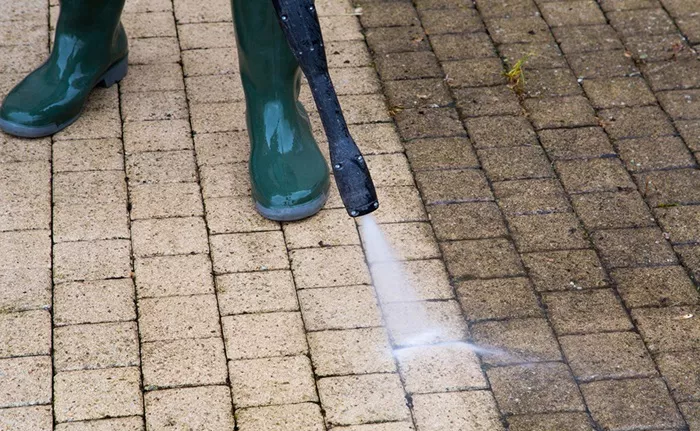When it comes to cleaning outdoor surfaces, pressure washers have become a popular tool. Many homeowners and professionals use them to clean driveways, patios, vehicles, and other surfaces. One common question that arises is whether pressure washers use less water compared to traditional garden hoses. This article will explore the water usage of pressure washers, how they work, and whether they truly conserve water.
What is a Pressure Washer?
A pressure washer is a powerful cleaning device that uses high-pressure water to remove dirt, grime, and other stains from surfaces. It is often used for outdoor cleaning tasks, such as washing cars, cleaning decks, driveways, or even large commercial areas. Pressure washers come in various types and sizes, ranging from light-duty models for home use to heavy-duty machines for industrial use.
How Does a Pressure Washer Work?
Pressure washers work by forcing water through a nozzle at high pressure. The pump inside the machine creates this pressure, making the water spray with enough force to dislodge dirt and debris from surfaces. The water is typically drawn from a standard garden hose or a water tank, depending on the model.
Pressure Washer Water Consumption
The main question here is whether using a pressure washer results in less water consumption compared to a traditional garden hose. To answer this, we need to understand how water usage is measured for both devices.
Water Usage of Traditional Garden Hoses
Traditional garden hoses typically release water at a flow rate of 5 to 10 gallons per minute (GPM). This means that in just one minute, a garden hose can use a significant amount of water. For instance, if you’re washing your car with a garden hose, it might take several minutes to clean the entire vehicle, using hundreds of gallons of water in the process.
Water Usage of Pressure Washers
On the other hand, a pressure washer uses significantly less water due to its high-pressure spraying system. Most residential pressure washers operate at flow rates of 1.5 to 2.5 GPM. While the pressure washer uses less water per minute, the water is sprayed with higher force, making it more efficient at cleaning surfaces. This efficiency is what often leads people to believe that pressure washers use less water than a traditional hose.
Do Pressure Washers Use Less Water Than Garden Hoses?
Yes, in many cases, a pressure washer can use less water than a garden hose. This is mainly because of the difference in flow rates and the efficiency of pressure washers in removing dirt. While a garden hose continuously releases a large amount of water, a pressure washer’s higher pressure ensures that less water is required to clean surfaces effectively.
Example: Washing a Car
If you were to wash a car with a garden hose, you could easily use 100 to 150 gallons of water, depending on how long you keep the hose running. In contrast, a pressure washer might only use 30 to 50 gallons to achieve the same level of cleanliness. The difference in water usage is due to the pressure washer’s ability to focus water in a concentrated stream, which cleans more efficiently.
Pressure Washer Types and Their Water Usage
Not all pressure washers are created equal when it comes to water consumption. There are different types of pressure washers, each with its own flow rate and water-saving features. Let’s take a closer look at the different types of pressure washers:
Electric Pressure Washers
Electric pressure washers are generally more energy-efficient and use less water than their gas-powered counterparts. They typically have a lower GPM rating, making them ideal for smaller tasks around the home, such as washing cars or cleaning decks.
Gas Pressure Washers
Gas-powered pressure washers are often used for more heavy-duty tasks, such as cleaning large commercial areas or heavy equipment. These machines tend to have higher GPM ratings, which means they use more water than electric models. However, they are still more water-efficient compared to traditional garden hoses.
Choosing the Right Pressure Washer for Water Conservation
When selecting a pressure washer, consider the flow rate. A lower GPM will result in less water usage. It’s also essential to consider the job you need to do. For light tasks around the home, an electric pressure washer with a low GPM will be sufficient and will conserve water. For larger commercial jobs, you may need a gas-powered model, but even then, it will use less water than a garden hose.
Other Benefits of Pressure Washers
In addition to using less water, pressure washers offer several other advantages, including:
Time Efficiency
Pressure washers clean surfaces much faster than garden hoses. The high-pressure water stream can remove dirt, grime, and other debris much more quickly than a hose, reducing the overall time spent on cleaning tasks.
Better Cleaning Results
The concentrated force of the water stream from a pressure washer provides a deeper clean, especially on surfaces like concrete, brick, and wood. A garden hose simply cannot match the cleaning power of a pressure washer.
Conclusion: Do Pressure Washers Really Use Less Water?
In conclusion, yes, pressure washers generally use less water than traditional garden hoses. The key lies in their high-pressure design, which allows for more efficient cleaning with less water. Whether you’re using a pressure washer for household tasks or larger commercial jobs, you can expect water conservation compared to a standard hose. It’s important to select the right type of pressure washer for your needs, taking into account factors like flow rate and the scope of the job.
Ultimately, using a pressure washer not only helps conserve water but also saves time and delivers better cleaning results. So, if you’re looking for an efficient way to clean while being mindful of your water usage, a pressure washer is a great option to consider.
Related topics:
- What Do I Need to Know Before Pressure Washing?
- Should I Use Soap When Pressure Washing?
- How Much Does It Cost to Have a Deck Power Washed?

